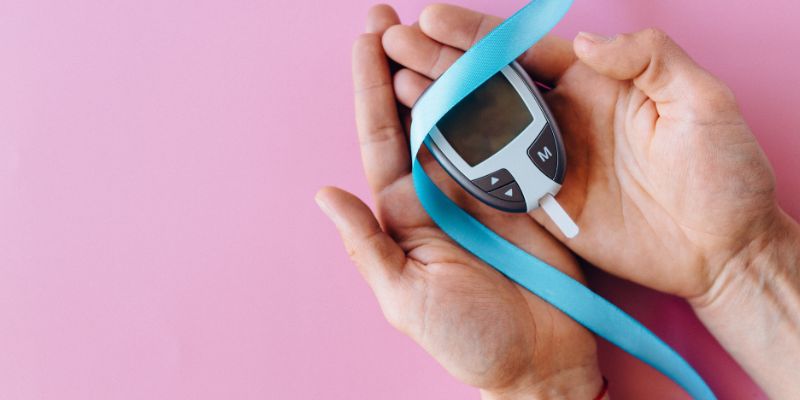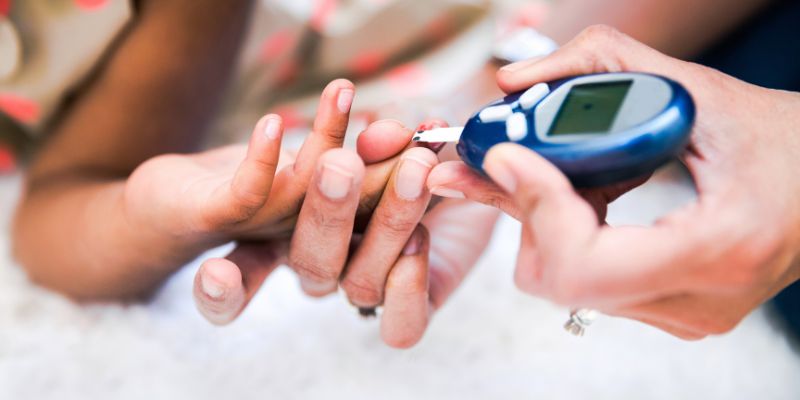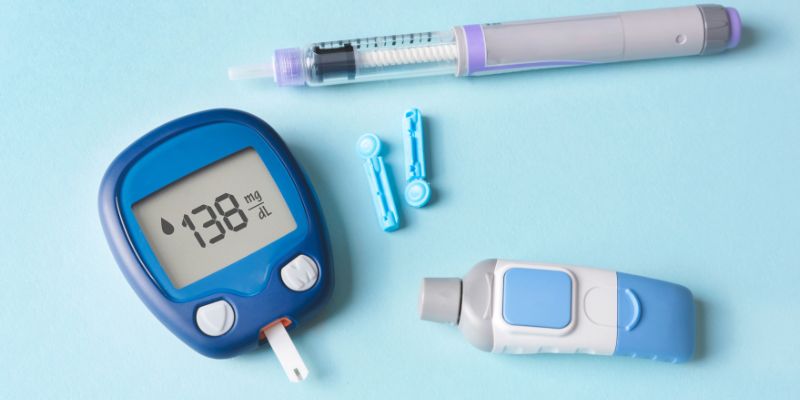Diabetes: Causes, Symptoms, Types, Treatments, Key Facts, And More
Do you struggle with diabetes and have heard there is no way to treat it? Well, you are not the only one. This condition has affected millions of people worldwide, which is still rising. Though diabetes is a chronic condition, it is not all bad news.
Today, by understanding the disease, its causes, treatment options, and following preventive measures, you can manage diabetes better and live a healthy life. If you know nothing about this condition, let this article guide you. So, let's get started!

What Is Diabetes And What Are Its Types?
Diabetes is a long-lasting medical condition that occurs when the body is unable to manage blood sugar levels properly. Insulin is a hormone responsible for absorbing glucose from the blood. When the body doesn't produce enough insulin, it increases blood sugar levels and causes diabetes. If you don't control your blood sugar level, it can cause serious health problems like heart disease and vision problems. There are four types of diabetes; you can learn about them in the following section!
Types Of Diabetes
Below are the four different types of diabetes:
- Type 1 Diabetes: Type 1 diabetes is a self-attacking condition in which the human body produces little to no insulin. It usually occurs in childhood or teenage years. Lifelong insulin therapy is needed to manage type 1 diabetes.
- Type 2 Diabetes: This is the most common type of diabetes, which occurs when the body shows resistance to insulin or doesn't produce enough insulin. Unlike type 1 diabetes, it develops in adulthood.
- Type 1.5 Diabetes (LADA): Type 1.5 diabetes is also called LADA. LADA means Latent Autoimmune Diabetes in Adults. Like type 1, LADA is a self-attacking condition, but in some cases, it develops slowly. LADA usually affects adults.
What Are The Causes Of Diabetes?
The causes of diabetes depend on the type of disease. Here are the causes of each type of diabetes.
- Type 1 Diabetes: In type 1 diabetes, the body's immune system attacks the pancreas. However, the exact cause of this attack is still unknown. According to research, it could be a combination of genetic and environmental factors like viral infections.
- Type 2 Diabetes: In this type of diabetes, lifestyle plays an important role. The causes of type 2 diabetes are overweight and diet. Other factors like a family history of diabetes and old age can also cause or increase the risk of developing type 2 diabetes.
Symptoms Of Diabetes
The symptoms of diabetes can depend on the type. Here are some common signs that a person with diabetes can witness:
- Increased Thirst And Frequent Urination: High blood sugar levels cause the kidneys to work harder to filter extra sugar, producing more urine.
- Weight Loss: One of the most common symptoms of diabetes is weight loss. Due to diabetes, the body breaks down fat and muscle for energy, which causes weight loss.
- Fatigue: Other symptoms are constant tiredness and lack of energy. Without enough glucose, the body's cells can't function properly, making people tired.
- Blurred Vision: High blood sugar causes the lenses of your eyes to swell, making your vision blurry.
- Numbness In The Hands Or Feet: Over time, high blood sugar can damage nerves, causing numbness or pain in the hands or feet.
- Increased Hunger Despite Eating: In diabetes, the human body does not use glucose properly, so the cells feel starved and increase hunger even after meals.
Treatment And Management Of Diabetes
There is no cure for diabetes, but you can manage it through treatments, a better lifestyle, and monitoring. The treatment of diabetes depends on its type. Here are the treatment options for diabetes.
Type 1 Diabetes Treatment: People with type 1 diabetes should take insulin for the rest of their lives. They can consume insulin through injections or an insulin pump. They should also maintain a healthy diet and exercise regularly.
Type 2 Diabetes Treatment: Treatment for type 2 diabetes starts with a change of diet and regular exercise. Medication can also help regulate blood sugar. In more serious cases, insulin therapy is also important.
Blood Sugar Monitoring: People with diabetes should monitor their blood sugar regularly. Self-monitoring blood glucose (SMBG) and continuous glucose monitoring (CGM) systems are common methods to keep track of blood sugar levels.
Healthy Lifestyle Choices: A good diet with plenty of vegetables, proteins, and healthy fats is important for managing diabetes. Regular physical exercise to lower blood sugar levels is another best treatment. Weight loss will improve blood sugar control.
Facts About Diabetes
Here are some facts about diabetes. If you have diabetes you should know these facts for better understanding.
- Diabetes is Increasing: The number of people with diabetes has been rising all over the world. Today, over 400 million people are living with diabetes.
- Type 2 Diabetes is More Common: Diabetes 2 is the most common. About 90-95% of all diabetes cases are Type 2.
- Diabetes Can cause serious problems: Diabetes can cause serious problems such as heart disease, stroke, kidney failure, and vision loss. To prevent these serious problems, you should manage them properly.
- Early Detection Is Very Important: Many people with Type 2 diabetes don't know they have it. Early detection through regular blood tests can prevent serious problems.
Conclusion:
Diabetes is a serious condition, but you can manage it with the right care and a better lifestyle. It's important to know the signs and causes of diabetes. You should know how to manage gestational, type 1, or type 2 diabetes. To improve your quality of life, you should regularly monitor diabetes. You can take care of your health by following the tips for diabetes prevention.













